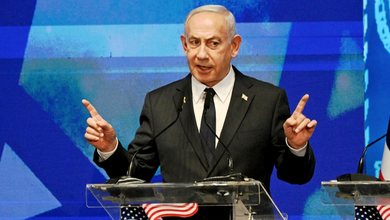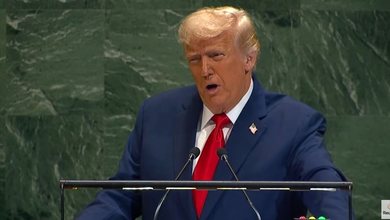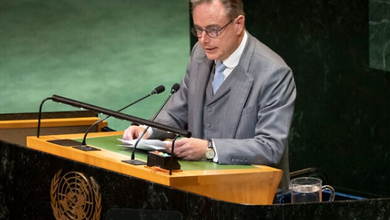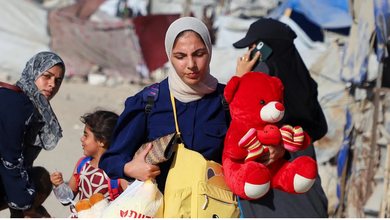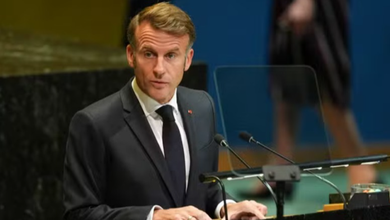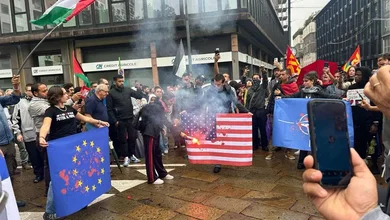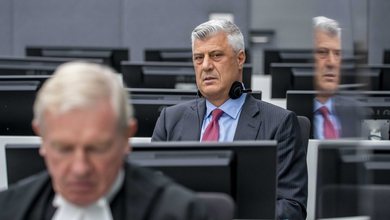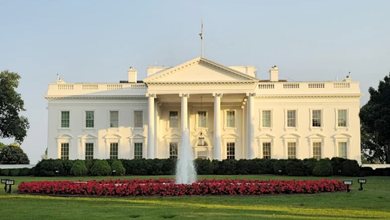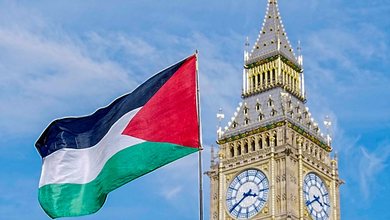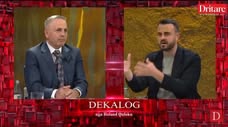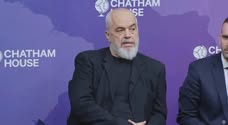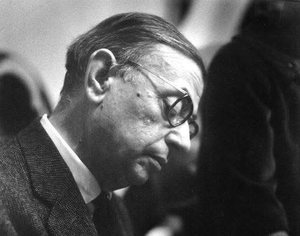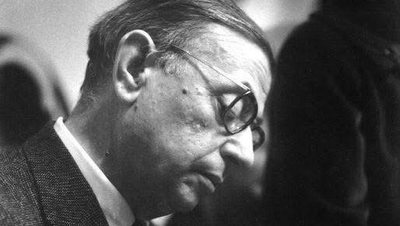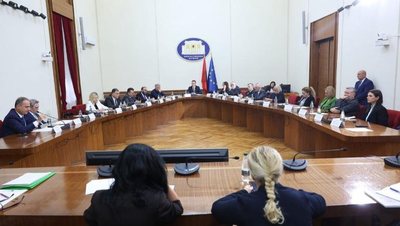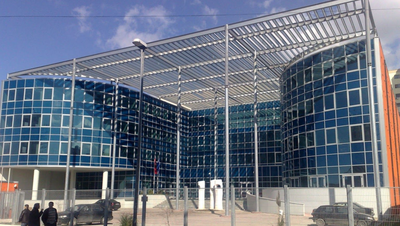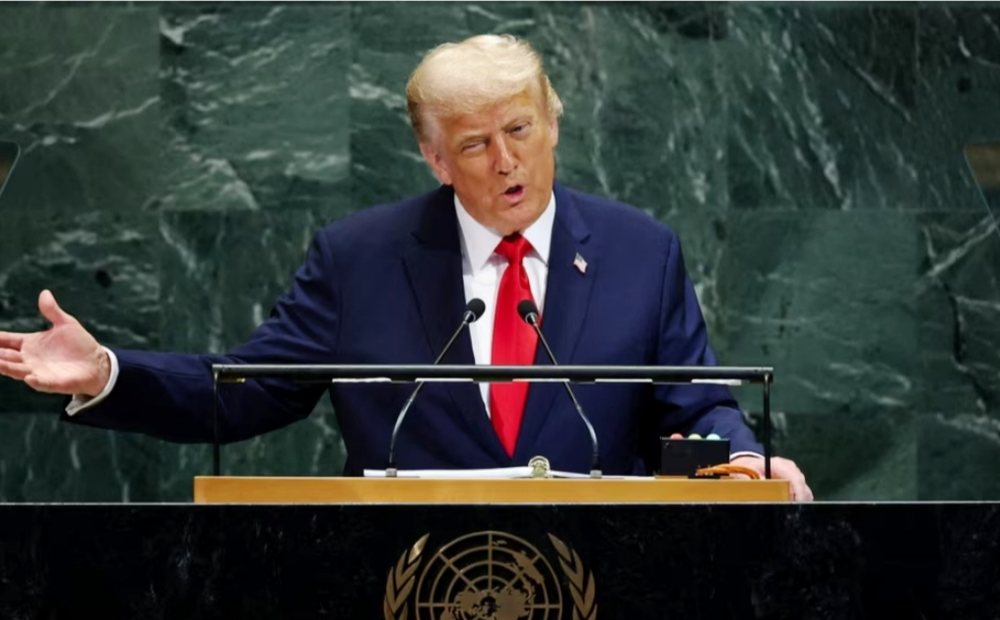
US President Donald Trump said European allies should immediately stop buying oil from Russia and accused China and India of financing Moscow's war against Ukraine through purchases of Russian products.
Speaking to world leaders at the opening of the United Nations General Assembly on September 23, Trump, who will meet with Ukrainian President Volodymyr Zelensky later in the day, said he could impose sanctions on Russia to stop the fighting, but without similar action from Europe "we're all wasting a lot of time."
"If Russia is not willing to reach an agreement to end the war, then the US is prepared to impose a round of very strong tariffs that would stop the bleeding, I believe very quickly," he said during the annual meeting in New York.
"But for these tariffs to be effective, European countries... will have to join us in imposing similar measures... Europe must do more."
Sanctions, along with security guarantees in the event of a peace agreement between Kiev and Moscow, are issues on which Zelensky hopes to receive support from the White House during his meeting with Trump.
Zelensky, who will address the Assembly on September 24, is also expected to attend a UN Security Council meeting on the war in Ukraine on September 23.
Zelensky wants to avoid two situations: the possibility of Trump pressuring him for major concessions with Russia or placing a large portion of the blame on Ukraine for the lack of progress toward a peace agreement after more than three years of Russian occupation of Ukraine.
Such a thing happened in February, when Trump called Zelensky a "dictator" and blamed him for the war, and then clashed with him during a meeting in the Oval Office.
With European leaders present, the Trump-Zelensky meeting in August went much better. But it came after Trump met with Russian President Vladimir Putin in Alaska and backed away from efforts to reach a ceasefire — something Ukraine wants but has been rejected by Russia — and instead said the two sides should aim for a peace deal.
The August meetings offered hope that the move toward peace could begin, with Trump talking up the possibility of a face-to-face meeting between Zelensky and Putin and a trilateral meeting in which he said the goal of ending the biggest war in Europe since 1945 could be pushed forward.
But the Kremlin quickly rejected the possibility of a Putin-Zelensky meeting in a place other than Moscow, an unacceptable request for Ukraine.
There has been no progress towards peace in recent weeks, but during this period Russia has pushed forward on the front lines, attacked civilians in Ukraine with massive bombings, and challenged NATO with drone and fighter jet incursions.
"Putin has shown no interest in negotiating an end to the war, but has insisted on his own terms that are totally unrealistic," said Lawrence Freedman, an analyst and professor of war studies at King's College London.
While U.S. security guarantees are being strongly sought by Ukraine in the event of an agreement to end the war, the lack of progress toward peace makes the prospect of tougher U.S. sanctions on Russia an immediate issue for Kiev.
Trump has expressed increasing anger at Russia's stance and has repeatedly said he could hit Moscow with new sanctions, including secondary measures that would target countries and companies that buy Russian energy or send Russia technology it could use in the war in Ukraine. Groups of US lawmakers from both parties have also proposed a Russia sanctions bill in Congress.
On September 7, Trump was asked if he was ready to move to “phase two of sanctions,” and he said yes. Meanwhile, on September 18, he said that Putin “has really disappointed me.”
On September 13, he conditioned the imposition of sanctions on similar measures by allies, saying he would be “ready to impose major sanctions on Russia when all NATO countries agree and do the same thing, when all NATO countries stop buying oil from Russia.” Trump also said that NATO should impose tariffs of 50 to 100 percent on Chinese imports.
Apart from raising tariffs on Indian imports by 25 percent over its purchase of Russian oil, Trump has so far avoided imposing new punitive measures on Russia and its trading partners. However, he has repeatedly expressed concern that imposing new sanctions could hinder his efforts to bring Putin to the negotiating table./ REL


